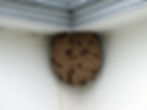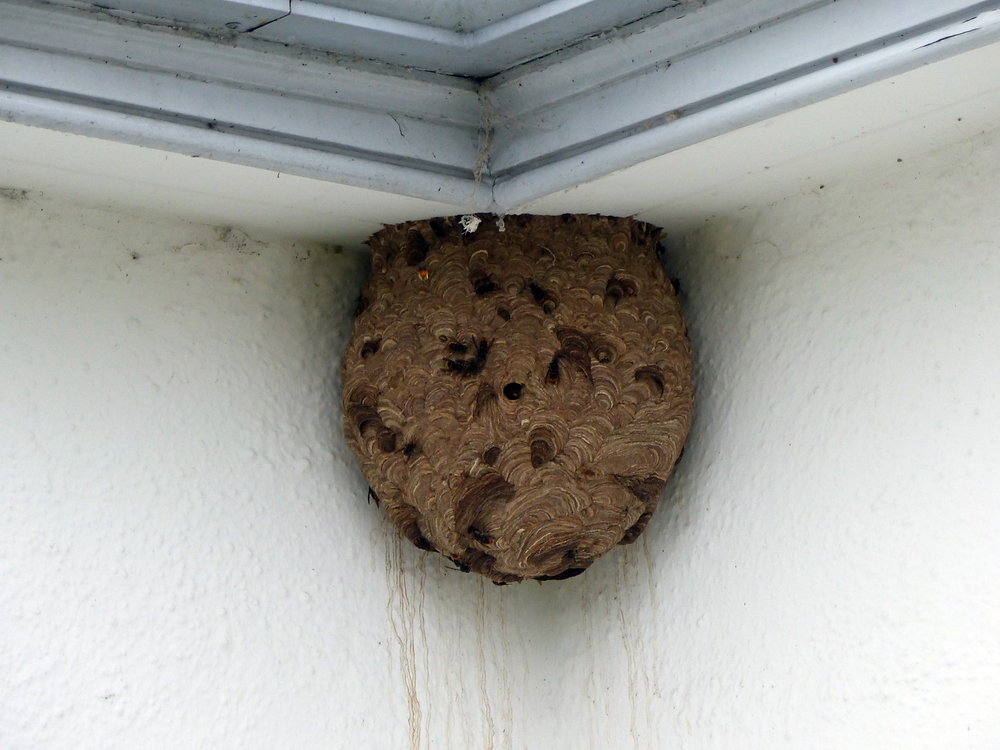
The Asian Hornet nest that was successfully removed today.
The Northern Ireland Environment Agency (NIEA) has confirmed the successful removal of the first Asian Hornet nest ever discovered in Northern Ireland.
The controlled operation took place in Dundonald today (18 October), close to the site where the invasive insect was first reported on 10 October.
The Asian Hornet (Vespa velutina) is considered a serious environmental threat, preying on honeybees and native pollinators, and potentially disrupting local ecosystems and crop production that depend on pollination.
A specialist team from the NIEA’s Invasive Non-Native Species unit led the removal, working alongside a trained pest control company.
Guidance was provided by the UK Animal and Plant Health Agency (APHA), while an official from the National Biodiversity Data Centre in Waterford offered on-the-ground support through the Shared Island Biosecurity and Invasive Species Initiative.
The NIEA said that ongoing surveillance will continue in the Dundonald area to ensure that no further hornet activity is detected.
A spokesperson for the agency said the successful operation highlights the importance of rapid public reporting:
“This is the first occurrence of such a nest in Northern Ireland. The Asian Hornet poses a significant threat to honeybees, native insects, pollinators and local ecosystems, as well as crop production which relies on pollinators.”
Members of the public and the beekeeping community are being urged to remain vigilant and to report any suspected sightings of the species immediately.
Reports should include a clear photograph and can be made via the Asian Hornet Watch app or through the CEDaR invasive species online recording system.
The NIEA emphasised that suspected nests should not be disturbed, as the hornets can become aggressive if threatened.
Public urged to help monitor invasive species
The discovery follows an increase in sightings across parts of the UK and Ireland, raising concerns about the insect’s potential to establish a breeding population.
The NIEA’s prompt action is part of a broader island-wide biosecurity effort aimed at preventing the spread of invasive species through cooperation between Northern Ireland, the Republic of Ireland, and Great Britain.
